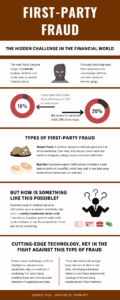Far from slowing scammers down, the pandemic and the various confinement measures around the world have actually made them even bolder. They have wasted no time in taking advantage of the rise in e-commerce and digital banking to commit ever more hacks, thefts and other illegal activity in an attempt to weaken the financial ecosystem. In the midst of adversity, they saw an opportunity to carry out attacks and capture banking credentials in an attempt to access customers’ money.
According to CipherTrace’s annual ‘Cryptocurrency Crime and Anti-Money Laundering Report’, crypto criminals managed to steal $1.9 billion in 2020, and the majority of this was down to fraud, followed by theft and ransomware. However, the report also reveals that the cryptocurrency sector has become much “more secure”. Attacks are now aimed at a more vulnerable sector: Decentralised Finance (DeFi). Furthermore, the increased pressure imposed by fraudsters creates an even greater challenge in the face of workplace changes (remote working) and social changes (e-commerce and digital banking). As a result, companies are having to increase their operational capacity, review and strengthen internal controls and make specific adjustments. This is an arduous, thankless and complex task that goes beyond digital transformation and instead involves completely rethinking their way of managing services and risks in order to guarantee security.
Facing this challenge, many organisations have opted not to stretch their operational capacity and instead turn to specialist companies to provide an agile response. In doing so, they have delegated issues like the digitalisation of processes such as onboarding, opening new credit accounts or even validating customer details automatically, without the need for paperwork or a physical presence. These are all operations that would be completely impossible for many organisations to tackle on their own, but which are vital if they intend to offer high-quality, secure, agile and efficient online financial services and in a strict regulatory environment.
One example of a solution is the Modellica Fraud Engine from GDS Modellica, which can be a vital tool when opening a new line of credit as it provides a comprehensive view of the customer’s identity, thereby helping organisations to acquire new customers, detect fraud, and build trust and security on their digital transformation journey. Managing director at GDS Modellica, Antonio García Rouco, claims that “identifying and verifying customers cross-channel and cross-device is difficult, but with our solution that joins together the different silos in the ecosystem, we are able to tackle this issue both online and offline.
The MODELLICA Fraud Engine helps prevent fraud for loans and credit and makes it possible to identify fake profiles, fictitious users, false information or even bank accounts that have been set up using an assumed identity. When it comes to approving loans and credit, this level of financial risk management provides many notable benefits. It can help organisations to make processes more effective with predictive analysis, improve operations, make better decisions, anticipate issues, achieve objectives, handle greater risks and establish a competitive advantage. Ultimately, it improves profitability and efficiency. New technological tools, whether it is Big Data, Artificial Intelligence or Machine Learning, make it possible to adopt a multi-layered approach in order to predictive and adaptive analysis, avoid risk and provide a rapid, active and robust response to emerging trends.
García Rouco, director at GDS Modellica, points out that “banks lose billions every year to fraudsters using stolen personal information to create new accounts and commit fraud. Despite the large number of guarantees at present, banks are more exposed to fraud than ever, due in part to the growing number of channels that customers use to access financial institutions, such as e-banking and mobile apps”. Using the right tools and solutions is the key to reducing fraud and providing better services to customers. In the fight against fraud, claims García Rouco, “financial institutions need to have better tools that are correctly integrated throughout the business to successfully beat scammers”.




